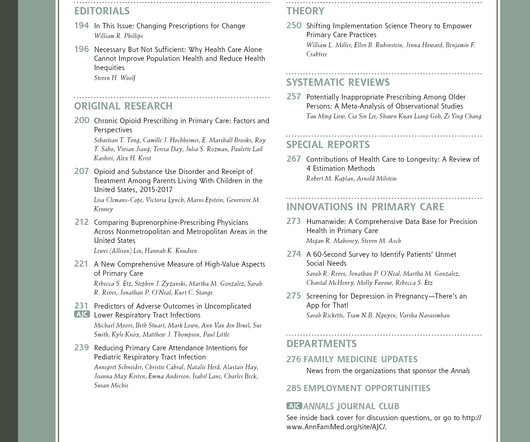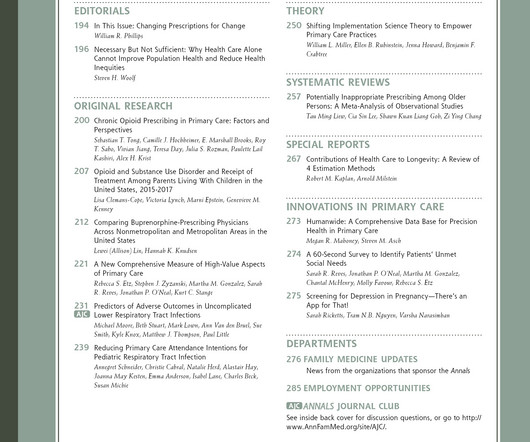Practice patterns of Ontario physicians working in 'boutique' medical clinics [Economic or policy analysis]
Annals of Family Medicine
NOVEMBER 20, 2024
Objective: Identify practice patterns of family physicians practicing within boutique clinics in Ontario. Three boutique clinics in Ontario were identified using publicly available information. Boutique clinics were more likely to see patients for musculoskeletal, dermatologic, and infectious disease illnesses.































Let's personalize your content